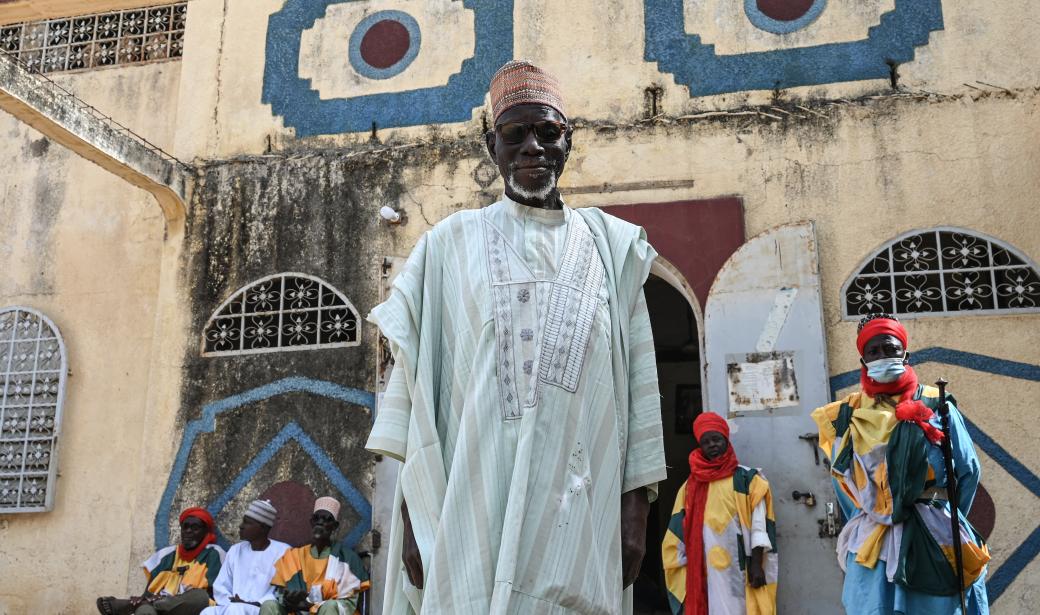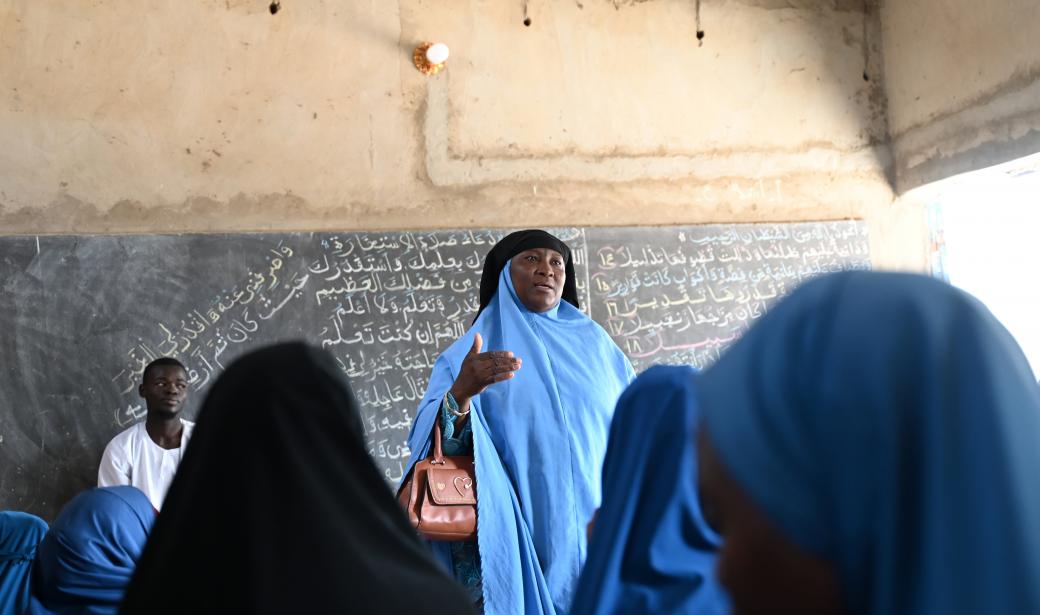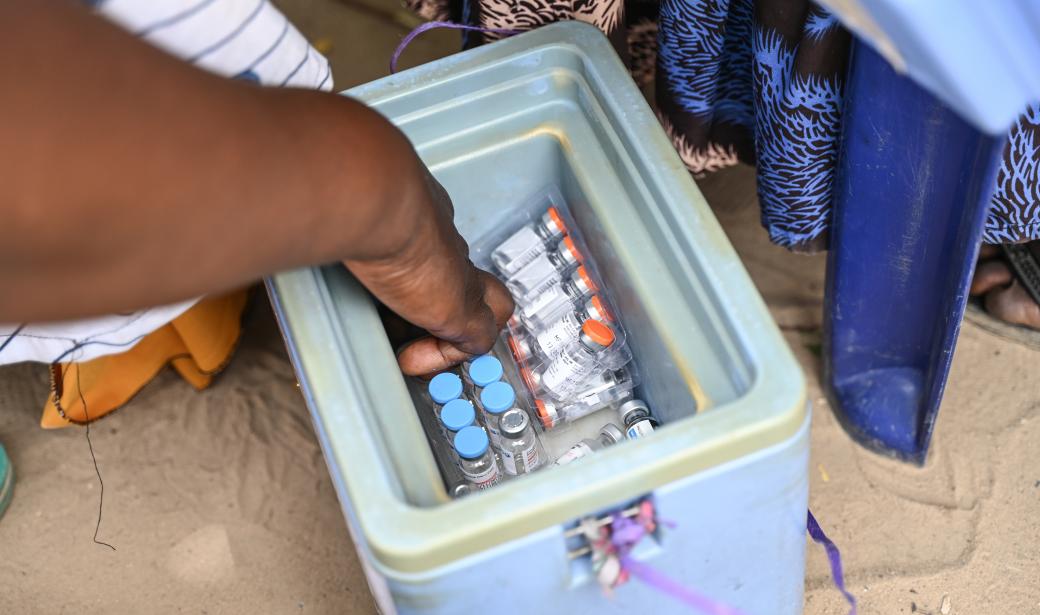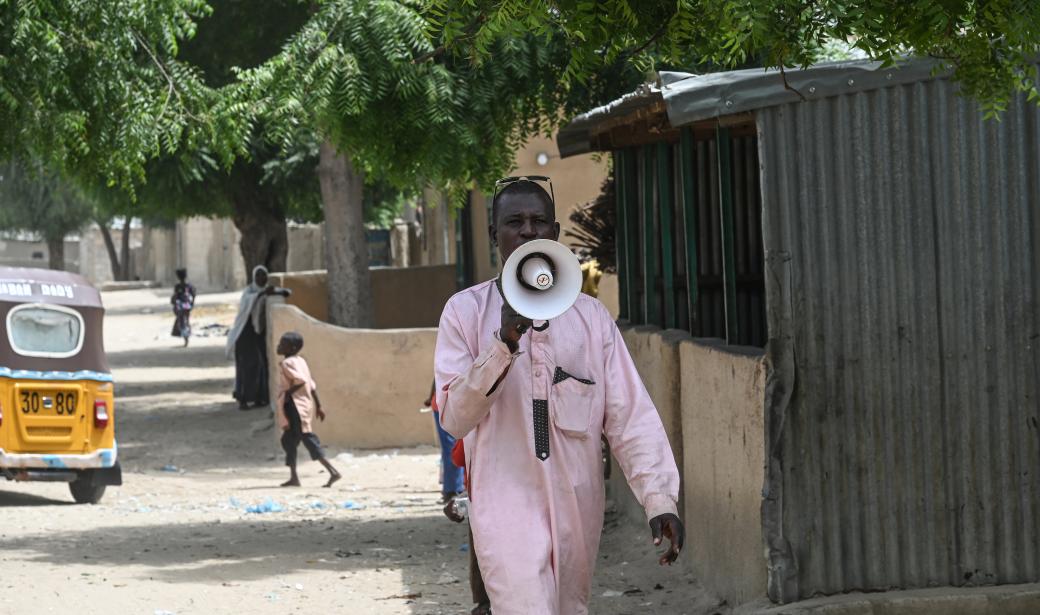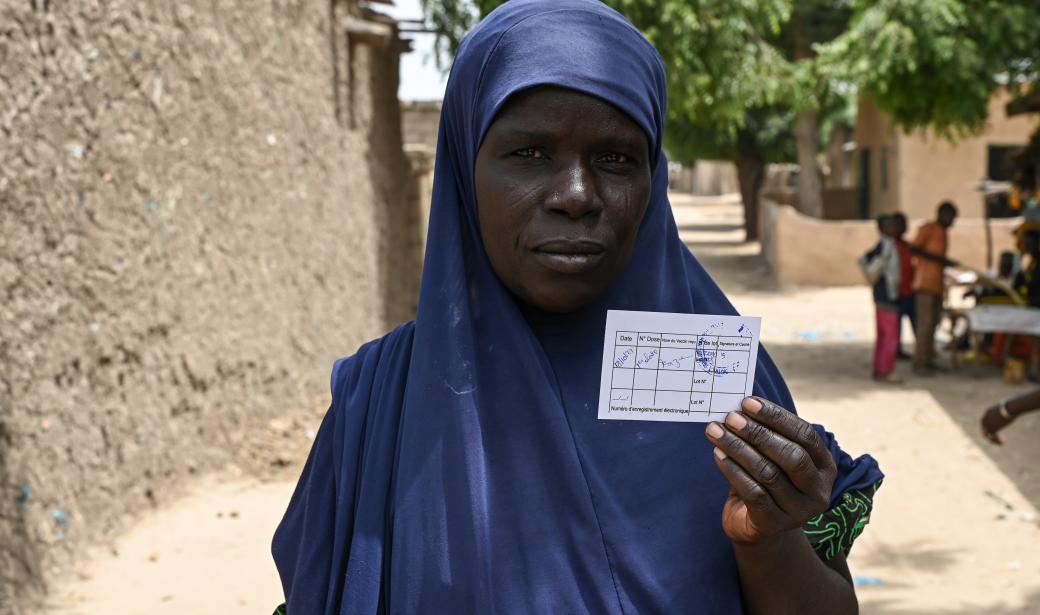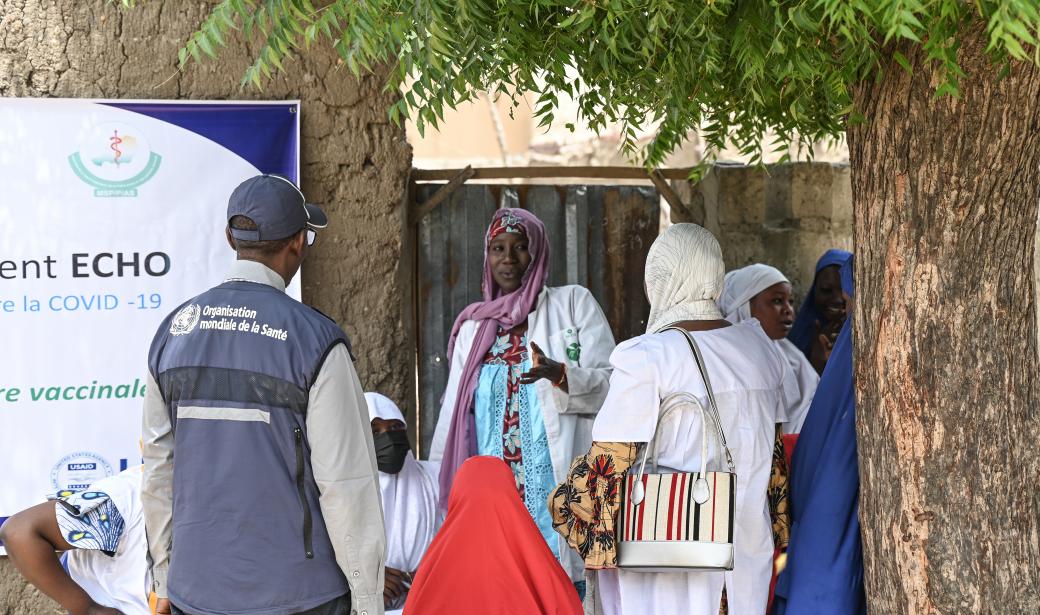Maradi, Niger – In Niger, 28% of the adult population is fully vaccinated against COVID-19. A seventh COVID-19 vaccination campaign, launched in mid-October, aims to vaccinate two-thirds of the over-18 population by year’s end.
The southern region of Maradi has the best vaccination coverage in the country, with 40% of the adult population fully vaccinated against COVID-19. At the heart of this success are community and religious leaders, whose influence is instrumental in combating rumours about vaccines circulating on social media and through word-of-mouth.
Before each new campaign they are pressed into service, informing the population of the upcoming availability of vaccines, as well as their safety and effectiveness in protecting against severe illness and death from the coronavirus.
Partners such as the European Union are ensuring that awareness of COVID-19 vaccination is strengthened and that rumours and misinformation do not take root among communities.
"There were a lot of rumors going around about vaccines, that they make people sterile or cause anemia," he says. "We were the first to get vaccinated; nothing happened to us. This reassured the population and showed that the rumours were just lies.”
Malama Balki Rabiou, head of a network of some 50 Koranic schools and a key figure among Maradi’s traditional leaders, laughs as she recalls rumours about COVID-19 vaccines – particularly the one about vaccines causing facial blisters or discomfort.
"Whenever I get the chance, I explain that measles and meningitis have become rare thanks to vaccines,” she says. “We get vaccinated to protect ourselves, our families and everyone around us.”
She has been vaccinated from the earliest opportunity. "As a community leader, our role is to lead by example,” she says.
She looks on as vaccinators set up shop in an alley in Soura Alladey, on the outskirts of the city. "We work with them to ensure that communication with the public is clear, credible, consistent, and understandable by all,” she adds.
"The goal is to show that the situation is both serious and manageable," says Dr Jamila Arzika Lélé. "People trust a well-known leader over a doctor like me, who comes from another neighborhood."
"At first, people didn't understand the benefit of vaccination,” recalls Ousseina Amadou, under the shade of a tree. She and other community outreach workers laughed at the wildest rumours circulating about vaccines. "Some said vaccines kill. We introduced ourselves as living proof of the contrary – because we’re all vaccinated!” she exclaims.
"The success of the COVID-19 vaccination campaign in Maradi is due to the leadership of local health authorities and the keen involvement of community and religious leaders.”
At the end of the seventh COVID-19 vaccination campaign, the Maradi region had achieved vaccination coverage of nearly 65% of its adult population, up from 40% before.
Communication Officer
WHO Niger
Email: vololonarivoh [at] who.int (vololonarivoh[at]who[dot]int)
Communication Officer
Regional Office for Africa
Email: defaitv [at] who.int (defaitv[at]who[dot]int)



